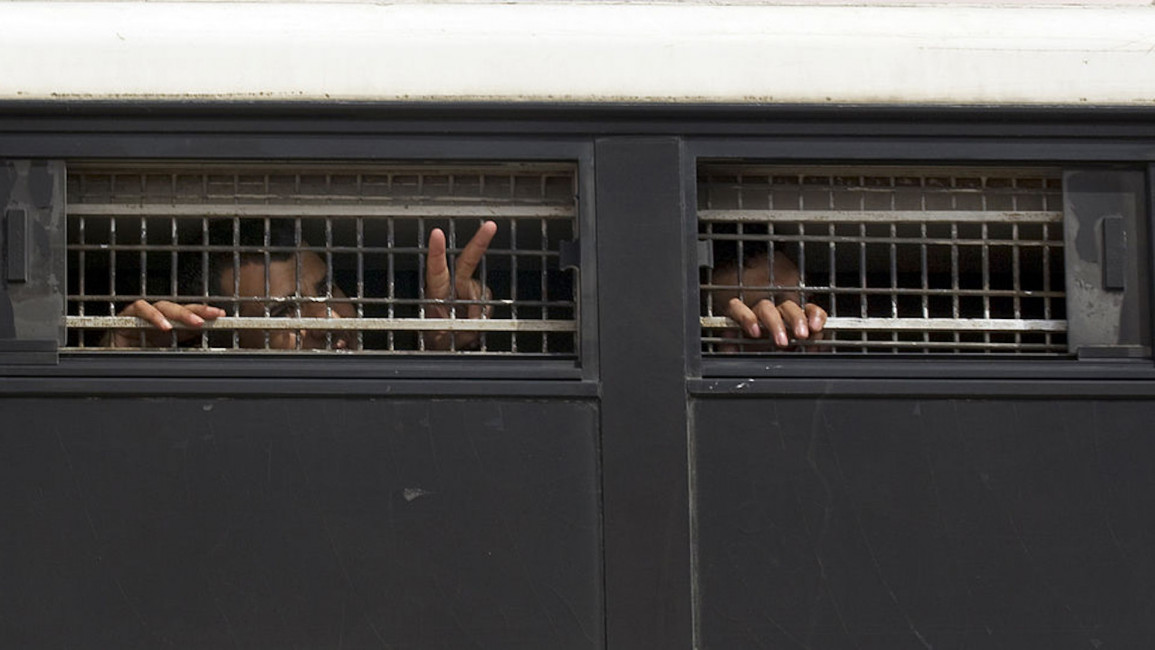Palestinians in Israeli prisons return meals in solidarity with hunger strikers
Palestinian prisoners in Israeli prisons began refusing food on Sunday, an official prisoner body has said.
The prisoners’ decision not to eat came in solidarity with six other Palestinian detainees on hunger strike who are protesting their administrative detention, the Palestinian High Commission for Prisoners’ Affairs said in a statement.
One of the six hunger strikers, 32-year-old Kayed Fasfus, has gone almost four months with food.
“The health of the six detainees is deteriorating greatly, especially Kayed Fasfus, who has entered his 117th day without food,” the commission’s lawyer Jameel Saadeh told The New Arab on Monday.
The six Palestinian detainees are protesting their detention without charge under the Israeli administrative detention system. The system allows the detention of any Palestinian by Israeli forces, for indefinitely renewable periods of up to six months, based on ‘secret information’ provided by the Israeli intelligence.
On Sunday, hundreds of Palestinians marched in Ramallah in support of the six hunger strikers. Hundreds more stood in front of the Israeli Kaplan clinic in Jerusalem, where one of the detainees on hunger strike, Miqdad Qawasmeh, was held.
Qawasmeh was transferred to the Ramleh prison clinic late on Sunday.
وقفة أمام مستشفى كابلان تضامنًا مع الأسرى المضربين عن الطعام و احتجاجًا على نقل الأسير مقداد القواسمي من المستشفى إلى سجن الرملة pic.twitter.com/JSNFA2JqCl
— المركز الفلسطيني للإعلام (@PalinfoAr) November 6, 2021
Israeli authorities have extended the detention orders of two of the six hunger strikers, and have refused to negotiate for their release.
“This is an attempt to send a message to the rest of Palestinian detainees that if they try to protest their administrative detention, they will risk their lives,” Saadeh said.



